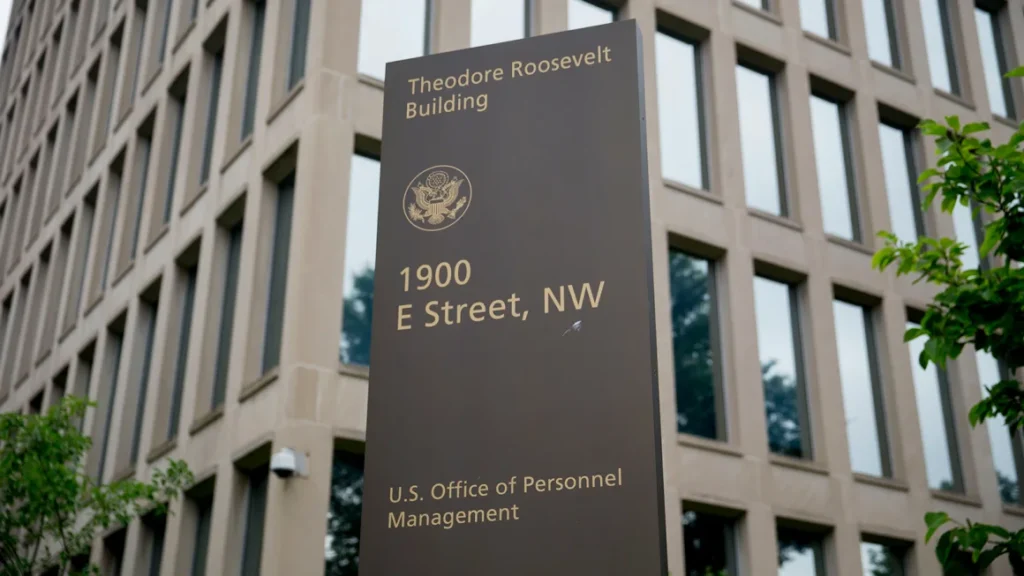White House has taken a dramatic step in its war on diversity, equity, inclusion, and accessibility (DEI) programs by placing all federal DEI employees on paid administrative leave, effective immediately. This decision, announced via a memo from U.S. Office of Personnel Management (OPM), is latest in a series of measures by Trump administration to dismantle DEI initiatives across federal agencies.
Press Secretary Karoline Leavitt confirmed action in a public statement, marking a pivotal move in President Donald Trump’s agenda to overhaul federal operations and eliminate what he describes as “bureaucratic inefficiencies” tied to DEI efforts. administration’s actions have sparked intense debate, with supporters viewing it as a return to merit-based governance and critics decrying it as a rollback of hard-won civil rights protections.
Key Developments in DEI Overhaul
| Aspect | Details |
| Immediate Action | Federal DEI employees placed on paid administrative leave, effective immediately. |
| Executive Orders | Trump signed an order banning DEI programs across federal agencies and contracting. |
| Agency Instructions | Federal agencies directed to dismantle DEI initiatives, remove websites, and cancel trainings. |
| Leadership Appointments | Elon Musk tapped to lead Department of Government Efficiency, driving anti-DEI agenda. |
| Criticism and Legal Challenges | Civil rights groups and advocates are preparing for extensive legal battles. |
| Private Sector Impact | Companies face increased pressure to scale back DEI programs amid political scrutiny. |
Details of Executive Order
executive order, signed just days after Trump’s inauguration, outlines a comprehensive dismantling of DEI programs across federal agencies. It mandates closure of DEI offices, removal of related websites and social media accounts, and cancellation of all diversity-related training programs. Additionally, order targets environmental justice initiatives, equity-related grants, and other programs deemed part of DEI framework.
A fact sheet released by White House explains that order also impacts federal contracting. Contractors will no longer be pressured to balance their workforce based on race, gender identity, sexual orientation, or other demographics. Instead, agencies are instructed to streamline processes to enhance speed and efficiency, framing move as a reduction of costs and bureaucracy.
Broader Context: Political War on DEI
Trump administration’s actions reflect a broader cultural and political conflict over DEI programs. While advocates argue that these initiatives address systemic inequalities and promote inclusion, critics contend that they unfairly disadvantage other groups, particularly White Americans. debate has been further polarized by Trump’s rhetoric, which frames DEI as a tool of leftist overreach.
Republican opposition to DEI is not new, but Trump’s aggressive approach represents a significant escalation. His administration has previously targeted DEI in military policy, federal hiring practices, and contracting regulations. recent actions are part of a broader effort to centralize authority and reshape federal priorities.
Legal Challenges and Advocacy Efforts
Civil rights organizations and legal advocacy groups are gearing up for a fight. American Civil Liberties Union (ACLU) has already pledged to challenge administration’s actions, arguing that they violate federal protections against discrimination. Hundreds of other advocacy groups are preparing lawsuits to protect DEI programs and communities they serve.
Legal experts predict that these battles could reach Supreme Court, setting stage for landmark rulings on scope of federal authority and future of diversity initiatives.
Impact on Federal Agencies and Employees
OPM memo instructed federal agencies to notify DEI employees by 5:00 PM EST on January 22, 2025, that they were being placed on leave. This affects thousands of employees across various departments, including Department of Health and Human Services (HHS) and Department of Defense (DOD), which house dedicated DEI offices. These agencies also manage programs supporting minority-owned businesses, diversity recruitment, and equity training, all of which are now at risk.
dismantling of these programs raises significant questions about federal government’s commitment to equal opportunity and representation. Employees placed on leave face uncertainty about their future, with no clear indication of whether they will be reassigned, laid off, or reinstated.
Role of Private Sector
Trump administration’s actions also align with broader trends in private sector, where some companies have scaled back DEI programs in response to pressure from conservative critics and shareholders. High-profile examples include corporate decisions to reduce funding for diversity training and recruitment programs.
While some business leaders argue that DEI efforts are essential for innovation and competitiveness, others have embraced Trump’s rhetoric, framing such initiatives as costly and divisive. This divide reflects larger cultural conflict surrounding DEI, with significant implications for future of workplace equity.
Public Reaction and Polarization
administration’s actions have intensified political polarization, with supporters hailing decision as a necessary correction to perceived overreach by previous administration and critics warning of its detrimental impact on marginalized communities. decision to appoint Elon Musk as head of newly formed Department of Government Efficiency has further fueled controversy, with many questioning his qualifications and motivations.
Protests and demonstrations have erupted across country, with activists emphasizing importance of DEI programs in addressing systemic inequities. Advocacy groups have also launched public awareness campaigns to highlight benefits of diversity initiatives and mobilize opposition to Trump’s policies.
Looking Ahead: Risks and Consequences
dismantling of federal DEI programs represents a significant shift in U.S. policy, with far-reaching implications for government operations, workplace equity, and civil rights. Critics warn that move could exacerbate existing inequalities, undermine trust in government institutions, and weaken nation’s commitment to diversity and inclusion.
As legal battles unfold, future of DEI in federal government remains uncertain. outcome of these challenges will not only shape trajectory of Trump administration’s policies but also set a precedent for how diversity and equity are addressed in public and private sectors.
Conclusion
White House’s decision to place DEI employees on leave and dismantle diversity programs marks a turning point in nation’s ongoing debate over equity and inclusion. While supporters see it as a return to merit-based principles, critics argue that it threatens to undo decades of progress toward equal opportunity. As nation grapples with these changes, resilience of civil rights advocates and outcomes of impending legal battles will play a critical role in determining future of DEI in America.
Disclaimer
This article is based on publicly available information as of January 22, 2025. views expressed are those of authors and do not necessarily reflect opinions of affiliated organizations. Readers are encouraged to consult multiple perspectives and sources for a comprehensive understanding of issue.


